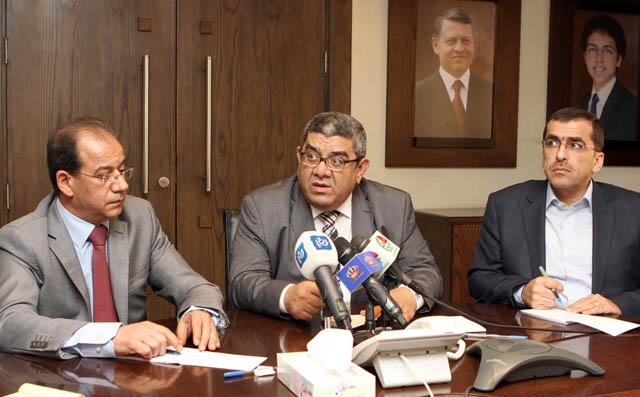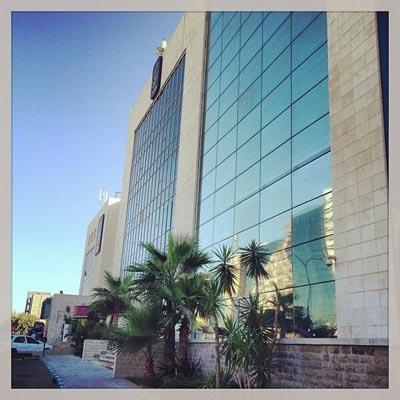You are here
Approving new telecom operator will lead to ‘price war’ — Orange France
By Mohammad Ghazal - Feb 01,2014 - Last updated at Feb 01,2014
PARIS — With the government expected to announce the name of a new mobile operator this week, French Telecom executives warned that giving a new licence will negatively affect existing operators in Jordan and the state’s revenues from the sector.
Licensing a new operator to introduce fourth generation (4G) services in the Jordanian market, where there are over 10 million mobile subscriptions, will lead to a “price war” and force all operators to tighten their belts on investments in networks, the executives said at a recent meeting with the press in Paris.
Lower investments in networks will eventually affect the quality of services, they added.
“In France, there was a war in prices because of introducing a fourth operator in the country. We expect the same for Jordan,” Patrice Loze, chief commercial officer of Orange France, said during a meeting at France Telecom headquarters in Paris last week.
“A fourth operator will certainly lead to a drop in revenues of operators. This affects quality of networks and services and eventually affects customers and government revenues,” Loze noted.
“You cannot make Jordan a hub for ICT if you do not have good quality networks. You cannot build an ecosystem where start-ups and companies that rely on telecom can grow without good telecom networks,” he added.
Revenues of France Telecom, which owns 51 per cent of Orange Jordan, already declined by 10 per cent in 2013 after the entry of a fourth operator in his country, according to Loze. The group’s annual revenues stand at about 43.5 billion euros.
At the meeting, Orange Jordan CEO Jean-Francois Thomas said licensing a new operator at this time in Jordan was a “mistake”, noting that prices of telecom services in Jordan are “very low and competitive”.
“I do not expect that a new operator will be able to offer lower prices as prices are already very low in Jordan,” Thomas added.
The Kingdom was ranked as the second most competitive cellular market in the Arab world in 2012, according to the Cellular Competition Intensity Index by the Arab Advisers Group.
The index took into account the number of operators, packages and services available in each of the 19 Arab states covered by the study.
The country’s three telecom operators —Zain Jordan, Orange Jordan and Umniah — have repeatedly called on the government to cancel plans for introducing a new operator, arguing that the competition in Jordan is “fierce”.
ICT Minister Azzam Sleit told The Jordan Times recently that the government is keen on opening the door for new technologies and services in the market, including 4G services, which prompted it to open the door for a new licence.
“We are not really after having a fourth or a fifth operator; we just want better services in Jordan and that users have access to more advanced services,” the minister said.
According to the latest figures by Arab Advisers Group, the revenues of the three operators declined to JD124.8 million in the third quarter of 2013 compared to JD136.2 million in the second quarter after the government doubled taxes on mobile subscriptions from 12 to 24 per cent.
Mobile penetration in Jordan reached 155 per cent by the end of September 2013, with 10.227 million subscriptions, according to the Telecommunications Regulatory Commission.
Internet penetration reached 72 per cent at the end of the third quarter of 2013, with 4.864 million users.
The ICT sector, mainly the telecom sector, contributes about 14 per cent to the gross domestic product annually and employs more than 60,000 people.
Related Articles
The government will announce the name of the investor with the winning bid to provide Fourth Generation telecom services before the end of this month, a senior official said Monday.
The government on Monday said it is no longer looking into alternatives to rescind a decision that increased taxes on mobile subscriptions, which telecom companies say has caused a drop in their profits and revenues.
Zain Jordan is expected to introduce Fourth Generation (4G) services that enable data transfer rates of up to 150 megabits per second by the end of this year, telecom officials told reporters on Tuesday.

















